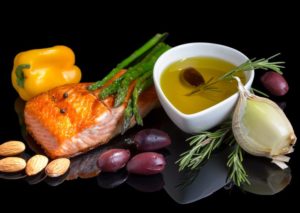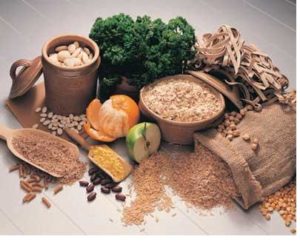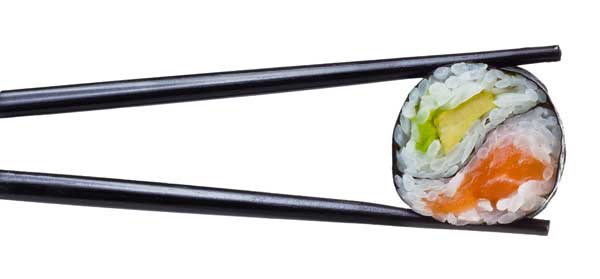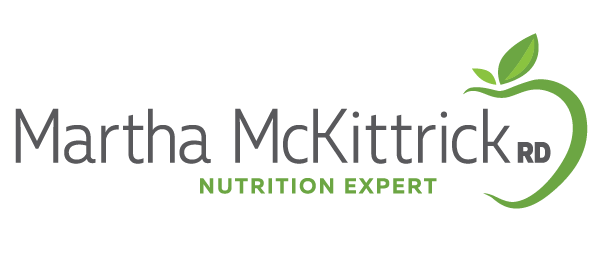Is Saturated Fat NOT Bad for Your Heart?

Saturated fat found in red meat, butter and cheese will clog your arteries – right? I’ve been telling my patients this for years. Then like most of you, I read the recent headlines touting saturated does not contribute to heart disease. I assumed this was another foolish media frenzy and never bothered to really explore it. After all, in my 20+ years of training as registered dietitian I’d been taught time and time again that saturated fat SIGNIFICANTLY contributes towards raising LDL cholesterol level and that this increases risk of CAD (cardiovascular heart disease). But I finally decided to do a little more investigation. And you know what – just maybe the French Paradox isn’t a paradox at all! Is saturated fat not bad for your heart? But before you order that bacon double cheeseburger for dinner, read on … (word of warning – this is a long post!)
Origins of saturated fat and cardiovascular disease link
In 1957 Researcher Ansel Keys and his colleagues began what would eventually be known as the Seven Countries Study. They surveyed 12,000 men aged 40 to 59 from 18 areas of seven countries (Italy, the Greek Islands, Yugoslavia, the Netherlands, Finland, Japan, and the United States). The report published in 1970 had a decisive impact on CVD prevention, as it described one of the first studies to clearly show that dietary saturated fat leads to CVD, and that the relationship is mediated by serum cholesterol.Read this link to learn more about this study as well as some of the other earlier studies done in the area of diet, lipid management and CVD. Hence the low fat (especially low saturated fat) diet recommendations were born.
Yugoslavia, the Netherlands, Finland, Japan, and the United States). The report published in 1970 had a decisive impact on CVD prevention, as it described one of the first studies to clearly show that dietary saturated fat leads to CVD, and that the relationship is mediated by serum cholesterol.Read this link to learn more about this study as well as some of the other earlier studies done in the area of diet, lipid management and CVD. Hence the low fat (especially low saturated fat) diet recommendations were born.
The critics say
Critics say the earlier studies used to support the low fat recommendation had serious flaws. More recent studies are not finding this link between heart disease and saturated fat. I like Dr. Andrew Weil’s explanation on “rethinking saturated fat”. So these criticisms got me to thinking and wanting to pursue it a little more. But first …
What the experts recommend
Despite recent research suggesting saturated doesn’t play a major role in CVD, most authoritative bodies are still recommending very low intakes of saturated fat:
– The American Heart Association (2006) recommends for limiting your intake of saturated fat to no more than 5-6% of energy, trans fat to 1% of energy, and cholesterol to 300 mg per day for lipid lowering.
– The American College of Cardiology also recommends a saturated fat intake of no more than 5-6% of calories. This would be about 13 gm of saturated fat for a 2000 calorie diet
– The FAO reported (2010) that saturated fat intake should be no more than 10% of energy and replaced by PUFAs.
The Academy of Nutrition and Dietetics recommend 20-35% of calories coming from fat(for healthy people), with an increased consumption of n-3 polyunsaturated fatty acids and limited intake of saturated and trans fats. And based on recent literature and consensus, the goal for SFA intake for the population should be 7% to 10% of total energy
 So you are probably wondering if all these experts recommend limiting saturated fat, why am I writing this blog post suggesting that maybe saturated fat does not increase risk of heart disease?
So you are probably wondering if all these experts recommend limiting saturated fat, why am I writing this blog post suggesting that maybe saturated fat does not increase risk of heart disease?
No one ever said my job as a registered dietitian is easy!
My research on recent studies on saturated fat and CAD: Is saturated fat not bad for your heart?
I went through Pub Med to find some recent studies on saturated fat and CVD. Keep in mind that there are thousands of studies out there. While I’m far from an expert in studies, I tried to select ones that were at least in peer reviewed journals.
The relationship between saturated fat and CAD is less clear cut than once thought. This may be due to the fact that not all saturated fats are created equal. Some foods high in saturated fat contain an array of saturated and unsaturated fatty acids each of which may differentially affect lipoprotein metabolism, as well as contribute significant amounts of other nutrients, which may alter CVD. For example, red meat contains heme iron and causes the gut to produce TMAO when digested – both of which can increase risk of CAD Reference
Here are some take home points:
- All saturated fats are not created equal – just like all carbs aren’t created equal. So we shouldn’t lump them together in one group. Both saturated and unsaturated fats differ in the number of bonds they have, where the bonds are placed, the chain length of the carbon molecules and lastly, the configuration of the double bonds (cis or trans). It’s these differences that affect the role the fatty acid plays in human health and disease. There are several types of saturated fatty acids that affect the body in different ways. And keep in mind the most foods contain several different fatty acids, both saturated and unsaturated.For example, stearic acid (one of the saturated fats found in meat), is an 18 carbon chain saturated fat does not raise cholesterol. Reference But other saturated fats do have an effect of raising cholesterol. Saturated fat from whole milk and butter increases LDL cholesterol when substituted for carbohydrates or unsaturated fatty acids; however, they may also increase HDL and therefore might not affect or even lower the total cholesterol:HDL cholesterol ratio. Reference
- Replacing saturated fat with high glycemic index carbs significantly increases risk of CAD. Replacing SFAs with carbohydrates with a high glycemic index results in higher triglyceride (TG) and lower HDL levels – which is associated with a higher risk of CAD. What is a high glycemic carb? White bread, cornflakes, pretzels, potatoes, candy, and most processed snack foods. Added sugars and high glycemic carbs also promote inflammation, which is linked to increased risk of heart disease as well as many other diseases. As per most health experts, added sugar is worse for heart health than saturated fat. Reference Dr. Andrew Weil On the other hand: Got nothing for you! No benefits to added sugar and high glycemic index carbs – so consume them sparingly.
- Some “healthy fats” MAY be inflammatory. Polyunsaturated fats are believed to be heart healthy. But not all PUFAs are created equal. There are 2 kinds, omega 6s (i.e. linolenic acid) found in vegetables oils such as corn oil, safflower oil and omega 3s (i.e. EPA, DHA) found in fatty fish and flax. They both play important but very different roles in the body. Some experts believe omega 6s tend to be inflammatory whereas omega 3s are anti-inflammatory. Some studies suggest that consuming too many omega 6’s and not enough omega 3s increase risk of CVD. References
 On the other hand: Other studies do not show omega 6s as being inflammatory (reference ) pic credit
On the other hand: Other studies do not show omega 6s as being inflammatory (reference ) pic credit - Processed meat – is associated with an increased risk of CAD and diabetes. Consumption of processed meats, but not red meats, is associated with higher incidence of CVD and diabetes mellitus. These results highlight the need for better understanding of potential mechanisms of effects and for particular focus on processed meats for dietary and policy recommendations. references #1 On the other hand: One study showed that a nutrient found in foods like egg yolks and fatty meats, produces the byproduct TMAO when digested. TMAO is known to promote plaque accumulation in the arteries causing heart disease. And this study found that heme iron consumption (found in red meat) increased the risk for coronary heart disease by 57 percent. So some studies do suggest red meat increases risk of CVD.
- Full fat dairy products don’t increase risk of heart disease. Numerous studies show that full fat milk, cheese, and yogurt are inversely associated with cardiovascular disease and diabetes risk. It’s possible that calcium and other bioactive components may modify the effects on LDL cholesterol and triglycerides.
- Coconut oil MAY have cardioprotective effects. Coconut oil is about 90% saturated fat, which is a higher percentage than butter (about 64% saturated fat), beef fat (40%), or even lard (also 40%). Coconut oil is also unusual because it contains a high percentage of medium-
 chain triglycerides, or MCTs. Our bodies metabolize MCTs differently than LCTs (long chain triglycerides – which are found in most other oils.) MCTs are transported directly from the intestinal tract to the liver, where they’re likely to be directly burned off as fuel and raise the metabolic rate slightly,” explains researcher Marie-Pierre St-Onge of Columbia University. That means less is available to be circulated throughout the body and deposited in fat tissues. Reference “Cold-pressed” virgin coconut oil has more antioxidants than the refined version. Some studies have shown it also has anti-inflammatory properties. Coconut oil does raise LDL cholesterol, but it also raises HDL. More studies are needed before I would recommend coconut over olive oil. But for now, it’s certainly fine in moderation.
chain triglycerides, or MCTs. Our bodies metabolize MCTs differently than LCTs (long chain triglycerides – which are found in most other oils.) MCTs are transported directly from the intestinal tract to the liver, where they’re likely to be directly burned off as fuel and raise the metabolic rate slightly,” explains researcher Marie-Pierre St-Onge of Columbia University. That means less is available to be circulated throughout the body and deposited in fat tissues. Reference “Cold-pressed” virgin coconut oil has more antioxidants than the refined version. Some studies have shown it also has anti-inflammatory properties. Coconut oil does raise LDL cholesterol, but it also raises HDL. More studies are needed before I would recommend coconut over olive oil. But for now, it’s certainly fine in moderation.
Bottom line
 Doing research for this blog post has opened my eyes on how the saturated fat/CVD links are evolving. We can’t really say saturated fat promotes heart health, but it doesn’t seem to be the bad guy like we once thought. But I’m certainly not at the point when I’m recommending my cardiac patients order 16 oz steaks topped off with butter at Ruth Chris! pic credit It will be interesting to see where future studies take us and if the authoritative bodies will revise their dietary recommendations for saturated fat. In the meantime, I’m going to loosen up my saturated fat recommendations with my patients … but not go hog wild and still recommend some moderation.
Doing research for this blog post has opened my eyes on how the saturated fat/CVD links are evolving. We can’t really say saturated fat promotes heart health, but it doesn’t seem to be the bad guy like we once thought. But I’m certainly not at the point when I’m recommending my cardiac patients order 16 oz steaks topped off with butter at Ruth Chris! pic credit It will be interesting to see where future studies take us and if the authoritative bodies will revise their dietary recommendations for saturated fat. In the meantime, I’m going to loosen up my saturated fat recommendations with my patients … but not go hog wild and still recommend some moderation.
But the real take home point for me is that we shouldn’t focus on a single nutrient when it comes to health. Look at the big picture. The typical Western diet is high in total fat, saturated and trans fat, refined carbohydrate and sodium. Think about it. We often have foods rich in saturated fat accompanied with some not so healthy foods. Examples: gooey cheese pizza on white bread, butter on white bagel, ice cream and candy carbs loaded with sugar and a jumbo burger of unknown meat quality, topped with likely processed cheese, sitting in a white processed bun served with fries cooked in oil of dubious quality at high temperatures. Need I say more? If you had a small portion of grass fed beef, served with a salad with a slice of fresh mozzarella cheese, oil and vinegar and a large portion of vegetables it would be a totally different story.
To reduce risk of heart disease, try keep the following in mind:

-Avoid trans fats
-Regular exercise
-Sit less
-Stress management
-Get adequate sleep
-Eat a lot of vegetables, some fruit and whole grains,
-Eat fewer processed foods including those with added sugar
-Minimize your intake of high glycemic carbs and choose more lower glycemic carbs including legumes, quinoa, barley and whole grains
– Eat fish at least twice a week
Eat fish at least twice a week
-Limit your intake of sodium
-Try to select lean cuts of grass fed beef
-Weight control … so this means you shouldn’t load up on any kind of fat as they are high in calories and calories still do count. If you want to add in some full fat dairy AND use a little more butter in cooking instead of the nonstick spray, you’ll need to cut back on calories somewhere else (maybe cut out some refined carbs!)
Stay tuned for more research on saturated fat and heart health. The cholesterol guidelines regarding eggs turned out to be wrong. Who knows? Maybe saturated fat will end up not being so bad for your heart.
RELATED POSTS
MEET MARTHA
I especially love problem-solving, whether it’s helping women defeat issues plaguing them for years, helping a busy executive find practical ways to get heart healthy, or providing tips to help you reverse diabetes. That’s why I’m on a constant quest to expand my knowledge by staying on top of the latest research.
1 Comments
Leave a Comment

20 Ways To Eat Out 550 Calories or Less!
No time to cook? We’ve got you covered. Here are 20 healthy meals from a variety of cuisines that won’t pack on the pounds. Most of them also have less than 30 grams of carbs.
Subscribe to my newsletter and get this free download.



Great post!! Everyone should take some time to read this one. It’s so important that we understand the truth our dietary and nutritional beliefs. Food can be our number one medicine.